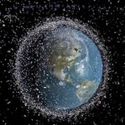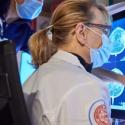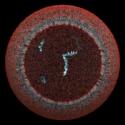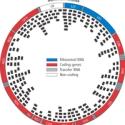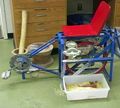Science Is Essential
Science touches so many aspects of modern life that it's hard to keep up. Through our programs and this website, Science for the Public provides up-to-date information about scientific innovations, discoveries, and issues that are shaping modern knowledge.
Coming Events
No events are scheduled for June or July
Recent Events
Space Debris Alert!: The Potential Impact on the Ozone Layer and Earth’s Climate
05/27/25 (rescheduled from April) Thousands of satellites orbit Earth. At the end of their missions, they drop into and burn up in the stratosphere, depositing ash that contains oxides and pollutants that are affecting both the ozone layer and the planet's climate. Atmospheric scientists are working to analyze the aerosols and their worrisome impact. Daniel Cziczo
The Brain-Computer-Interface Paradox
05-20-25 For individuals paralyzed by injury, stroke or ALS, brain-computer-interface (BCI) devices can enable movement and even speech. However, there are concerns: specifically, that such technology could be developed for mind control. Lukas Meier
Cancer Research: How It Works and Why It's Crucial Today
04/08/25 Numerous types of cancer are increasing today and scientists are trying to identify the causes. That's why cancer research is one of the most important concerns of modern science. We learn how the research is done and also why federal funding for this work is essential. Gerald Denis
Cosmos: Solar Systems
Stellar death explosions produce massive gas and dust clouds, and some of that detritus becomes solar systems ...
Atom
The concept that all matter is composed of an invisible but fundamental entity was resisted for a very long time.
Resistance to New Ideas
Many of the most important advances in scientific understanding were initially rejected or ignored.
Life: Extreme Forms of Life
The discovery of organisms thriving in extreme temperatures and conditions deep undersea, deep in the Earth, deep in the ice suggests that life, once it emerges, is extraordinarily resilient..
Featured Items
Using Gravitational Lensing to Detect Dark Matter
01/14/25 Dark matter accounts for some 27 percent of the universe but is invisible. One promising technique to reveal it is the analysis of gravitational lensing that very occasionally aligns galaxy clusters. Jacqueline McCleary
Is Earth Exceptional?
02/18/25 Is there life beyond Earth? So far, despite the discovery that there are billions of planets in our galaxy, and our increasingly sophisticated probes for life, we still don’t know. Life and the conditions for its emergence are both very complex phenomena. Mario Livio
Heads Up! Surprising Stats
Science for the Public is committed to improving public knowledge of science and public appreciation for the contributions of science to social progress.

They Didn't Believe It! The Atom
11/07/19 Science for the Public mini-series : They Didn't Believe It!
Brief stories about science discoveries that were very slow to be accepted

Vital Ocean-Atmosphere Dynamics
01-10-23 An explanation of one of the most important factors in our planet's climate: ocean-atmosphere relationship. Amala Mahadevan

Analyzing Clouds and Climate Change
09/26/23 Clouds protect the planet and play an essential role in climate dynamics. How will the rapidly heating planet affect that relationship? Daniel Cziczo
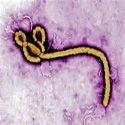
Understanding Viruses: The Connor Lab
07/2014 The Connor Lab at Boston University is a leader in the effort to understand how viruses infect and how cells learn how to block infection. John Connor
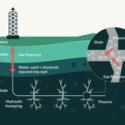
Fracking: The Facts and Issues
11/12/13 A panel of experts presents the known scientific, health and environmental facts about fracking.
Phartiyal_Pallavi, Aaron Bernstein, William Moomaw, Andrew Rosenberg
Today's Featured Contributors
Featured Author
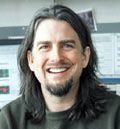
John Quackenbush, Ph.D.
A very engaging discussion of the human genome project by one of the researchers involved
Featured Guest

Nir Eisikovits, Ph.D.
A prominent philosopher who addresses issues in Artificial Intelligence and in military ethics.
As a world society, it seems clear that we have arrived at a point in our history when there must be a major increase in the capability of ordinary people to cope with the scientific and technological culture that is shaping their lives and the lives of their children.
—Leon Lederman, Nobel Laureate in physics

